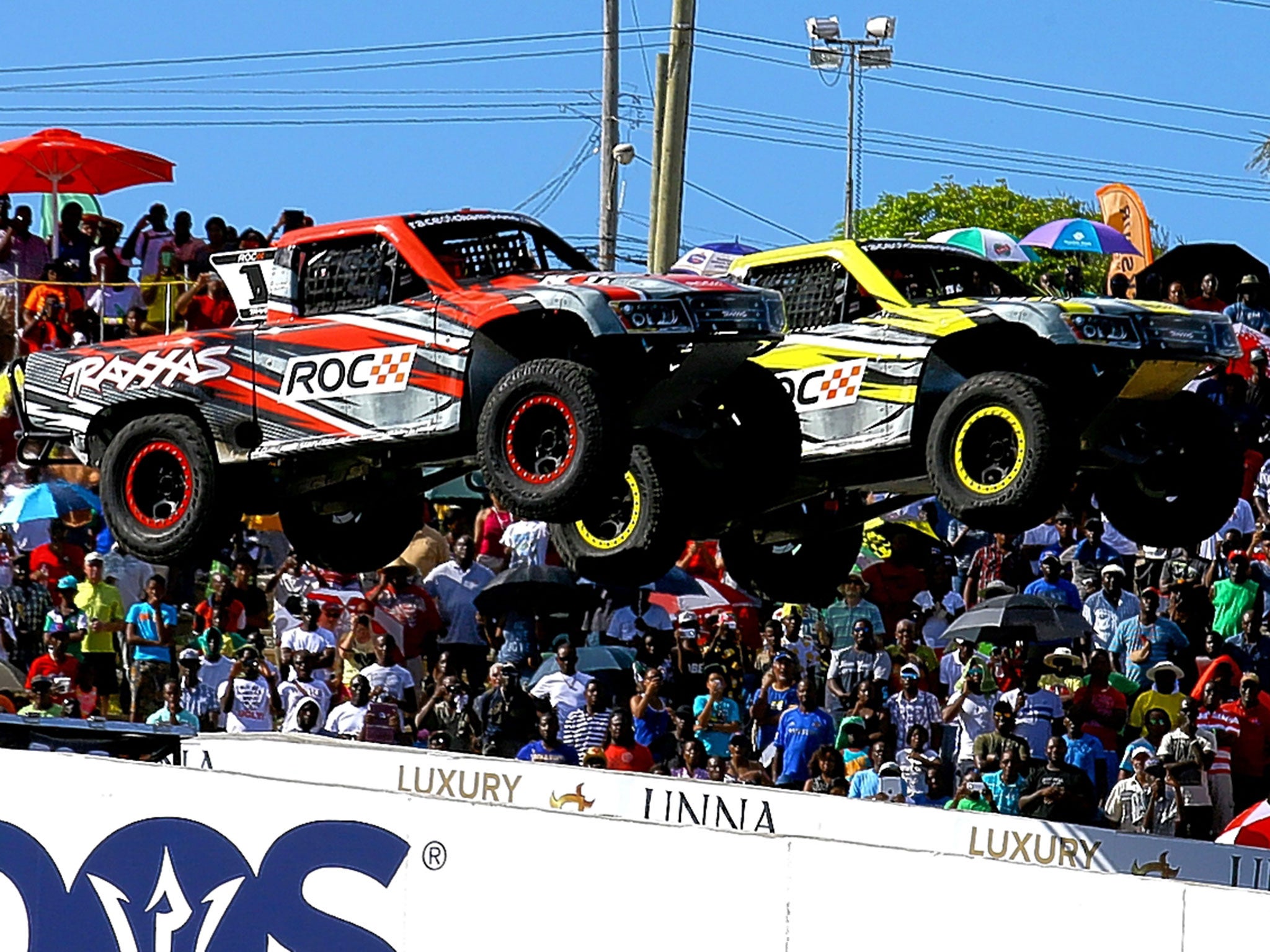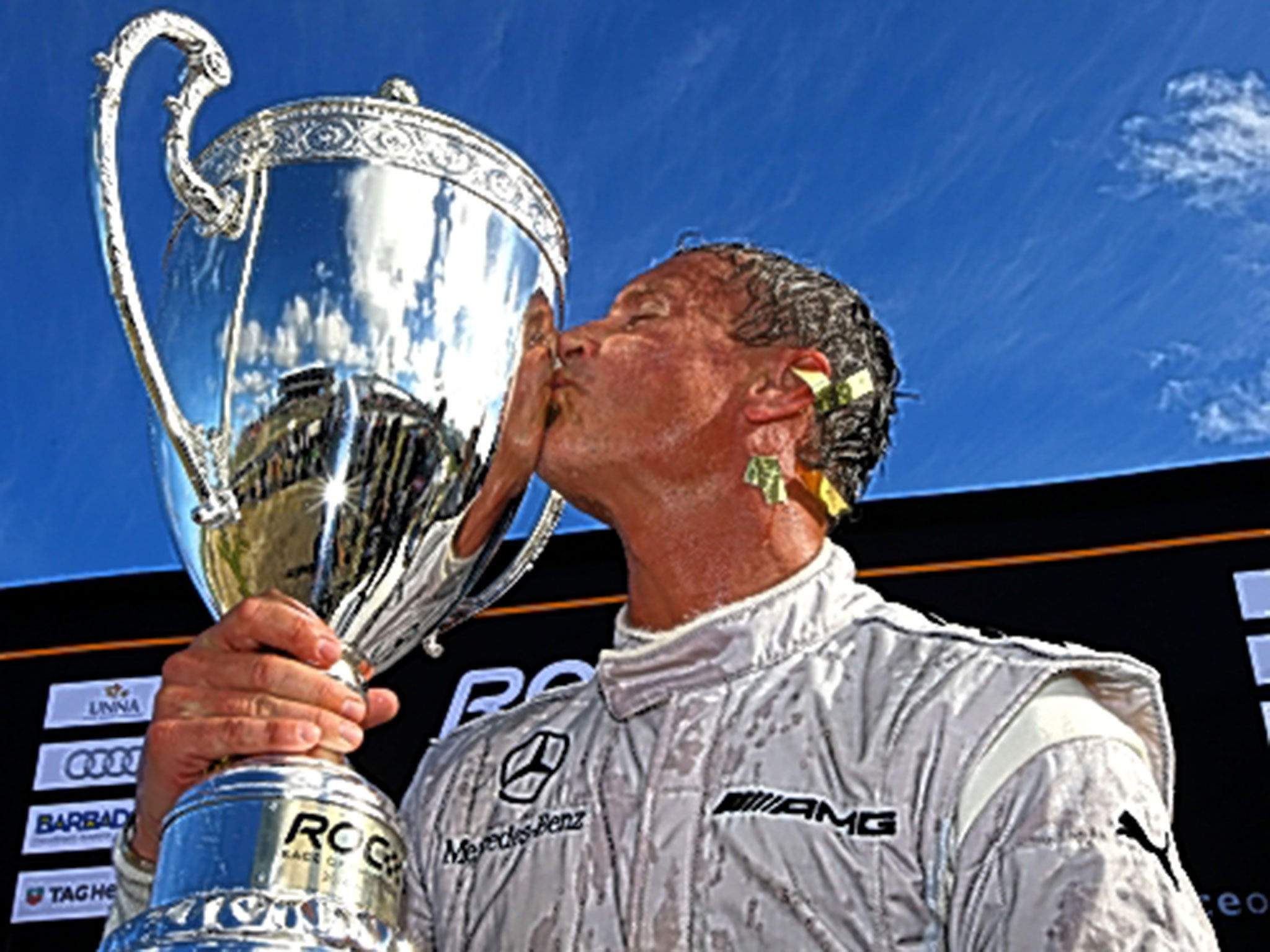David Coulthard a winner again at Caribbean's 'crazy racing'
Former F1 driver shows he still has what it takes to win annual competition, where motorsport's elite, and Matt Majendie, compete in anything from trucks to go-karts

Your support helps us to tell the story
From reproductive rights to climate change to Big Tech, The Independent is on the ground when the story is developing. Whether it's investigating the financials of Elon Musk's pro-Trump PAC or producing our latest documentary, 'The A Word', which shines a light on the American women fighting for reproductive rights, we know how important it is to parse out the facts from the messaging.
At such a critical moment in US history, we need reporters on the ground. Your donation allows us to keep sending journalists to speak to both sides of the story.
The Independent is trusted by Americans across the entire political spectrum. And unlike many other quality news outlets, we choose not to lock Americans out of our reporting and analysis with paywalls. We believe quality journalism should be available to everyone, paid for by those who can afford it.
Your support makes all the difference.David Coulthard and Mick Doohan are sitting on the back of a supertruck talking about the nuances of tackling such a vehicle.
Whether Coulthard’s advice is duff is not entirely clear but moments later Doohan, a man once nicknamed “Dead by June Doohan” by the media for his wild motorbike-riding style, has flipped the truck. The five-time world champion may be more accustomed to two wheels than four. Now he is on none.
The pair are gearing up for the annual Race of Champions, head-to-head racing more akin to a modern-day wacky races, which took place in Barbados last weekend.
The premise is simple. Champions from different motorsport formulae – Formula One to rallying and IndyCar – are pitted against each other in a variety of vehicles, from Nascar to supertrucks, on a 2.3-kilometre course. First they race against each other in a group stage before a knockout phase – on Saturdays it is the team event and on Sundays the individual.
Doohan likes to profess it is all just a bit of fun. But it creeps out in conversation before the event that he was taking it sufficiently seriously to practise at his karting track at home.
The winner last time out was Romain Grosjean who, when asked in the build-up how he thinks he might fare, says with a smile: “It depends how much rum we have at night.” But then, when the racing gets underway, the Lotus F1 driver storms off the track in a fit of rage when the gearbox sticks on his final race. Moments later, he is all smiles again, excusing his temperament: “I’m more Latin than Nordic so I blow up sometimes. I’m a competitor so I don’t like to lose, but it’s ok.”
Tom Kristensen is known as “Mr Le Mans”, the Dane having won the event a record nine times and finished on the podium 14 times.
Moments before he is due to compete in the Race of Nations – a nation v nation (or sometimes region v region contest) on the opening day, – he is all smiles, with his son sitting beside him. But called to race, his gaze changes.
“Sure, it’s fun, we enjoy meeting up with each other and having a good time but when the helmet goes on, when the visor is down, you just want to win,” says Kristensen, who celebrates his victory with Petter Solberg for Team Nordic by wearing a Rastafarian wig on the podium. “We’re racers, we all want to win. It doesn’t change here or at Le Mans.”

The event was co-founded in 1986 by one of the most famous female racers of all time Michele Mouton – runner-up in the 1982 World Rally Championship – and Fredrik Johnsson.
The Barbadian locals christened it “crazy racing”, to which Johnsson, who designed this year’s course, responded: “Crazy racing? I’ve not heard that before, I like it. But that’s what it is and the drivers come because they love the racing, the event, everything.”
But there is also a serious side to its existence. It was set up in memory of rally driver Henri Toivonen, who died leading the 1986 Tour de Course, and a trophy in his honour is awarded to each year’s winner.
In its early years, it was based in Gran Canaria before it began to travel the world at stadium venues in Beijing, Bangkok, London and Dusseldorf. Last year’s event in Bangkok was cancelled because of civil unrest on the streets of Thailand’s capital, so it has been moved to more relaxed surroundings in Barbados, the event also reverting to its old format on an actual race track.
Johnsson has had little difficulty luring big names in the past: Michael Schumacher and Sebastian Vettel were regular competitors. This year’s event admittedly was missing a true star name, but the appeal is such that someone like Grosjean cut into a family holiday on a neighbouring Caribbean island, just to be here.
In the races themselves, each driver must carry a passenger of equal weight as part of the competition – I was alongside Williams F1 test driver Susie Wolff in the blisteringly quick Ariel Atom Cup car (we lost) in a format of, one mistake and you’re out.
And it’s those mistakes that seem to delight the drivers the most, the remaining 15 competitors in stitches watching on the big screen as Jose Maria Lopez is the first casualty of the weekend flipping the super truck like Doohan and taking a load of gravel on board in the process.
As it reaches the finale, Coulthard throws back the years at the age of 43 to defeat Mercedes reserve driver Pascal Wehrlein, understudy to Lewis Hamilton next season, and claim this year’s crown, but there is no prize money for these multi-millionaire drivers, just pride and bragging rights for another year.
Join our commenting forum
Join thought-provoking conversations, follow other Independent readers and see their replies
Comments